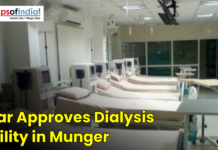The cases of dengue are dramatically increasing in Ahmedabad and in the first 13 days of September, it is recorded that more than 200 cases have been reported. The Ahmedabad Municipal Corporation (AMC) has also identified 26 citywide Hotspots in which the disease is proliferating in the city. To prevent the outbreak, health officials have given warnings and augmented precautions.
The causes of this problem with the dengue incidences are linked to the formation of favourable conditions, in which the Aedes mosquitoes, which transmit the largest portion of the virus, reproduce. Some of the most affected areas include wards such as Gomtipur, Behrampura, Paldid, Navrangpura, and Ranip, hence special measures such as use of fogging, larvicides and removal of stagnant water have been introduced. The inhabitants of these areas have been educated to take care of steps like using mosquito nets, use of repellents, and covering their water storage vessels.
Other mosquito-based and water-based diseases have also demonstrated some morbidity growth in the city, in addition to dengue. The data of AMC shows that in Vatva ward, there are 75 cases of malaria, seven cases of severe malaria, 180 cases of typhoid, 120 cases of diarrhoea and vomiting, and one case of cholera. The analysis of water quality has pointed out the fact that there are 44 non-potable samples, which suggests that the threat of contaminated water supply is still in existence. Health officials have urged citizens to be more vigilant, maintain hygiene and report suspected cases at the earliest stage possible.
The population statistics of the dengue cases in this year indicate that there were 526 men and 408 women infected, of whom 115 them are children below the age of eight. The number of dengue cases in the city has reached 934 cases already in the year 2025, which means that the disease still remains a significant public health issue of concern.
The officials of AMC have reiterated the need to involve the community in the management of the outbreak. There are public sensitization exercises, clean-up exercises, and careful supervision of water pools in the hot spots to ensure that breeding grounds of mosquitoes are minimized. Municipal administrators are also replacing the aging pipes and enhancing water drainage systems to avoid waterlogging, one of the causes of the proliferation of vector-borne diseases.
Although the situation is being mirrored, it has been noted that cases of dengue can still keep increasing until the end of the monsoon season. The residents are encouraged to observe preventive measures carefully and consult medical care as early as possible when having symptoms such as high fever, debilitating headache, joint pain, or rashes. The joint action of local governments and citizens is important to ensure the outbreak is contained and the effects of the disease in Ahmedabad are reduced.










